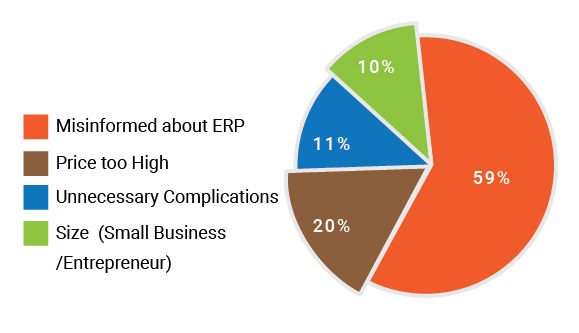|
|
ERP: 2022 & BEYOND
ERP or Enterprise Resource Planning solutions as we know them today, have come a long way from their earliest incarnations as inventory tools in the 1960s. Today users of ERP software systems include small and medium businesses in addition to enterprises, across a spectrum of industries that are no longer limited to manufacturing or supply chain.
Earlier this year, SoftwareSuggest surveyed a total of 740 businesses, with various types such as enterprises, SMBs, and entrepreneurs appropriately represented in the respondent base.
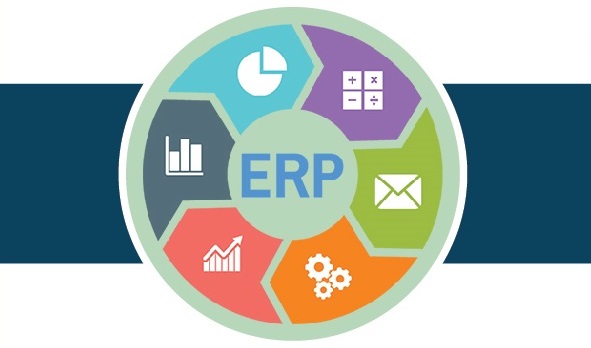
There was the increased participation of organizations from industries like retail, finance, IT, and education.
Although their end goals differ, companies of all sizes are looking at ERP implementation as a way to connect stakeholders across departments and engender optimum resource allocation.
At the end of the day, that’s a goal that is universal across organizations.

WHY ERP?
Different firms of different sizes have varying reasons for taking the pain to implement ERP software.
Reasons range from wanting to offer better customer service to growth positioning. A good portion of the respondents also wants to implement a new ERP in order to replace old legacy ERP variants that they’ve used for a long time.
Reasons also vary with the size of the organization. While a majority of the bigger firms implement ERP for greater connectivity across various departments and locations, quite a few of the smaller businesses implement ERP systems just because their competitors have done the same.
Regardless, ERP systems have seen greater implementation across businesses of different sizes, primarily due to their ability to integrate cross-functional areas in the value chain.
REASON FOR ERP IMPLEMENTATION
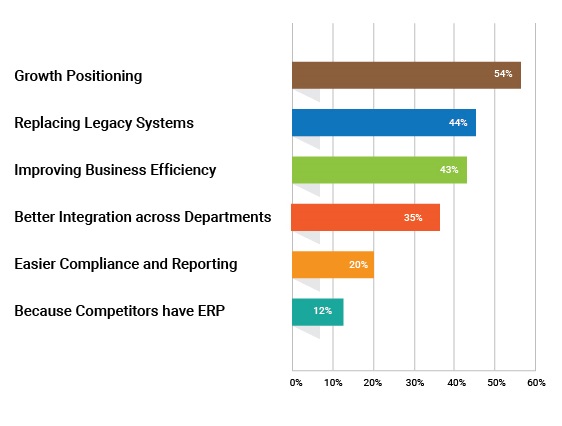
WHY THE HESITATION?
Just as the reasons for ERP implementation vary across the board, the reasons for businesses, especially small businesses, hesitating to opt for an ERP solution also differ.
By and large, we found that many businesses are ill-informed about what an ERP can do for their business. There's a big misconception that it is just another bulky addition to an already bulky suite of disparate systems. Many respondents also stated intimidating prices as being a major barrier in making that final call. Small businesses and entrepreneurs, in particular, are hesitant to adopt ERP systems because they don't know any better and mistakenly believe that exorbitantly priced ERP solutions are the only options.
Additionally, businesses fear the scope of change that will accompany such an extensive, company-wide technological upheaval. But, as we will see, there is little truth to such myths.
HESITATION FOR ERP IMPLEMENTATION
DISPELLING THE MYTHS

ERP implementation may seem like a tedious process, but such a perception can keep businesses from learning more and elevating their operational efficiency with ERP software.
#1 ERP Cost is Way too High! The good quality ERP software is available for much lower than you might have thought. This has been made possible to the rise of the SaaS model, and with more ERP providers encouraging the pay-as-you-use model
#2 ERP is only suitable for Large Corporations The previous point makes it clear that ERP providers are making an effort to cater to businesses of all sizes. In fact, even huge companies like SAP and Oracle now have ERP solutions tailor-made for small businesses!
#3 ERP Implementation Takes Up an Exorbitant Amount of Time The truth is that the time taken for ERP implementation varies in accordance with the size and type of business. With a SaaS cloud platform implementation, maintenance and updates have come to require minimal downtime.
Moving ahead, let's look at some of the latest ERP trends which could help you pinpoint exactly what you should look for in an ERP solution for your business.
DEPLOYMENT MODES
SaaS ERP software has received a huge push when it comes to preferred deployment modes, with 59% of respondents opting for it.
Many businesses are gravitating towards SaaS models due to the lower cost and the customization options. There is a major uptick in the number of organizations opting for cloud-based ERP.
The cloud model allows access to various stakeholders via any device, from wherever they might be. A majority of the businesses going for cloud solutions are SMBs, as it fits their needs more than an extensive, on-premise ERP suite could.
Larger organizations still have some hesitation with opting for such solutions and with being early adopters of this relatively new ERP deployment model.
There are still many IT heads and CIOs who want to control every aspect, including ERP, from within the organization due to privacy and security concerns.
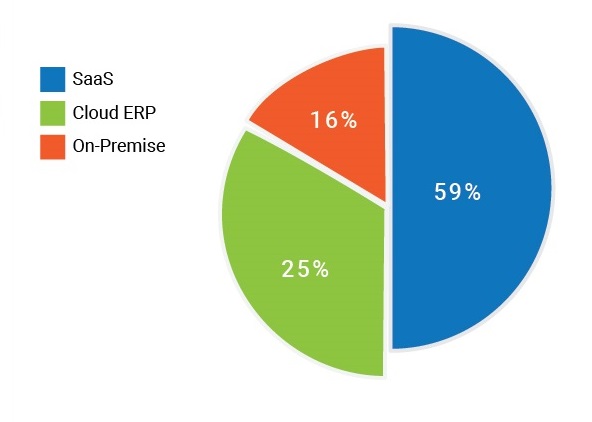
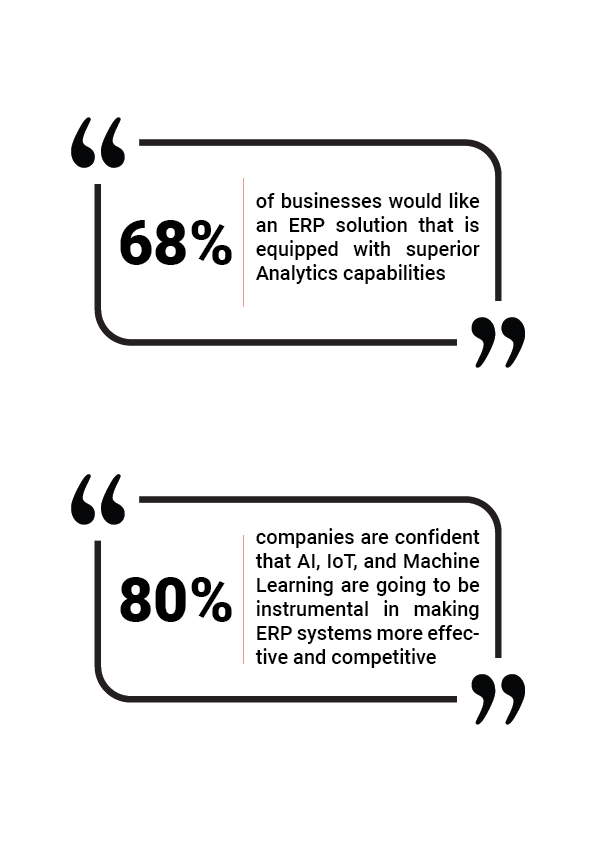
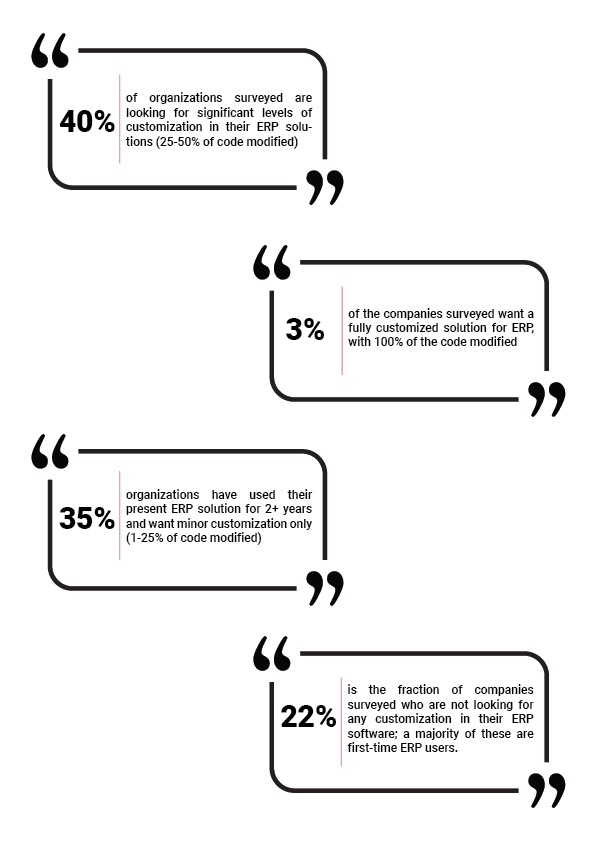
POPULAR ERP SOFTWARE
THE MOST SOUGHT AFTER ERP SOLUTIONS ON SOFTWARESUGGEST
Oracle ERP: Released in 2010 by Oracle, the Oracle ERP Cloud is designed to get the best out of each facet of your business. It automates manual tasks so that leaders can focus on strategic initiatives. It helps businesses forge the way ahead by delivering predictive insights from real-time data, allowing for better decision-making and enhanced operational efficiency. Oracle was named the 2018 ERP Cloud Leader by Gartner.
TCS iON: TCS is committed to making its users worldwide future-ready. Its Enterprise 4.0 cloud solutions are hosted ERP solutions that cater to core processes like accounting and finance, procurement, supply chain, and sales. TCS iON offers quick deployment, and its deep ERP expertise allows for overall business agility and efficiency.
SAP ERP: It provides intelligent on-premise + cloud ERP solutions for businesses of all sizes. Finance, supply chain, CRM - whatever your business needs, SAP ERP delivers a streamlined solution that is easily implemented and immensely customizable. The cloud ERP even has a conversational UX with complete digital assistance.
CAMS-Exact: It is an ERP solution with a focus on SMEs (Small and Medium Enterprises). The CAMS-Exact is multi-module, and also has auto SMS and auto mailer features. Moreover, it is fully GST compliant, so you never have to worry about tax compliance while using this solution.
Sage: It offers simple and flexible ERP solutions to small, mid-sized, and large enterprises. It connects various functional areas seamlessly, providing insights into which areas can be improved, and how to go about the same. Sage ERP is scalable and provides businesses with on-site support and unmatched expertise.
CaniasERP: It is another flexible ERP solution. It is platform-independent and is an open-source offering. It makes processes transparent and efficient for enterprises of all sizes, in a simple and scalable manner. You can choose from a range of databases and operating systems to implement Canias. Its TROIA base maximizes flexibility, allowing users to make quick adjustments in their system whenever required.
Focus: It provides custom ERP solutions based on the client’s industry, be it manufacturing or service. Based on its business analysis of the client, Focus ERP will provide a unique streamlined ERP solution tailor-made for the client. Its intuitive interface, custom dashboards, and automated updates ensure that minimal training is required. It automates complex processes specific to your industry to deliver transparency and mobility to your organization.
Uneecops: SAP’s SME offering, Uneecops Business One caters to small and medium-sized businesses specifically. Uneecops offers efficient customer and lead management, in addition to payroll management, payment and invoicing automation, and complete accounting and financial management, all at a budget.
Zeta: It simplifies processes for all departments. In addition to regular modules such as accounts and sales, it also provides field force management, time tracking, inventory management, and quality control. Strong CRM, finance, and operational modules allow Zeta users to accelerate and expand their business at an astounding rate.
Pact: It has offerings for all types of organizations. Its ERP solution is especially suited to SMEs. It has a responsive UI and incredible scalability + security. Whether it’s procurement, asset management, sales management, or CRM, Pact speeds up your internal processes to deliver the fastest turnaround times. Streamline your business functions to empower your key decision-makers with Pact ERP.
We know what the right ERP solution for your business is!
Just fill this form and we’ll get back to you.


 Overview
Overview